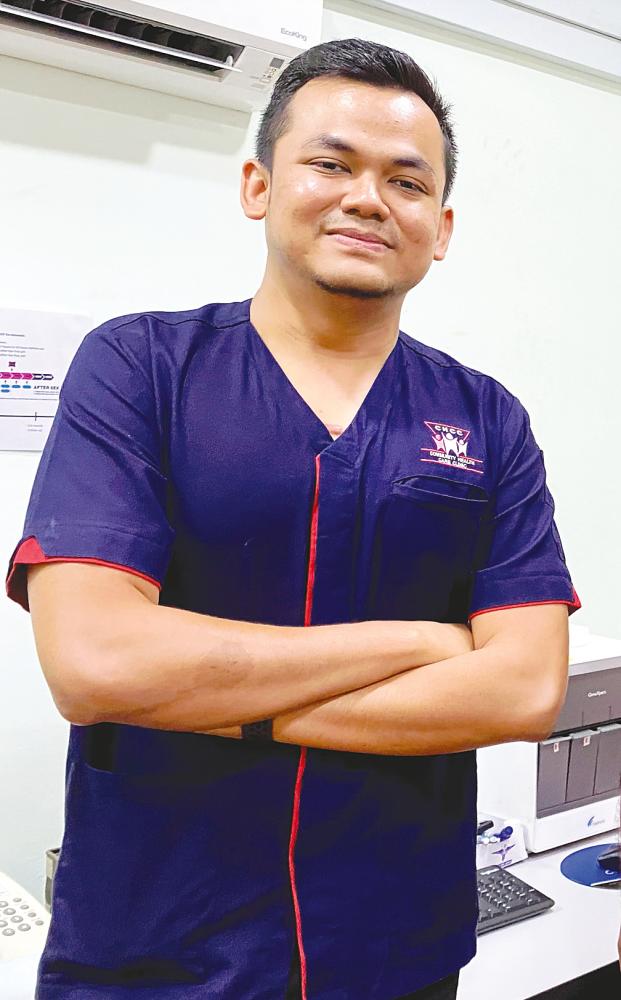PETALING JAYA: With 81,000 people living with HIV (PLHIV) in the country as of 2021, discrimination is widespread and continues to be a challenge despite advancements in medicine that allow them to live in society and lead fulfilling lives, said a doctor dealing with the disease.
The resident doctor at the Community Health Care Clinic run by the PT Foundation, Dr Haziman Fauzi, said the organisation has to keep doing what it does best in the interest of PLHIV.
“Of the 81,000 PLHIV, 83% are aware of their status after being notified via the Health Ministry’s National Surveillance Programme, but they still need support from healthcare professionals and the public.”
PT Foundation is a community-based, voluntary non-profit organisation providing HIV/AIDS education on prevention, care and support, empowerment programmes on sexual health for vulnerable communities.
It focuses on five key affected populations – drug users, sex workers, transsexuals, men who have sex with men and PLHIV.
On public education and awareness, Haziman said the foundation conducts talks on the basic science of HIV/AIDS and HIV modes of transmission and treatment, especially on its
open days.
“We consult with family members as well in regards to PLHIV, but only with those who have opened up about their status to
their family members. This helps increase awareness about HIV.
“We believe knowledge is the most powerful tool to end the stigma against the human immunodeficiency virus. Some stigma is caused by the patients themselves, where newly diagnosed ones face self-stigmatisation, which can affect their mental health. We provide free counselling sessions for newly diagnosed HIV-positive patients, and we encourage them to join our peer group sharing sessions.”
One of the foundation’s PLHIV patients, who wishes to remain anonymous, told theSun of his experience after contracting HIV.
“It felt devastating at first. My legs went numb. All hopes and plans I had for a better life vanished at that very moment and of course, overcoming the denial stage was extremely difficult.
“The main challenges of having this disease start with accepting the fact that ‘I got infected’, and trusting people to share and disclose my HIV status.
“Other challenges that followed were on how to pursue my career and achieve goals for myself and my loved ones, knowing that a majority of society still has a strong negative stigma towards PLHIV.”
A study by Universiti Sains Malaysia, titled Stigma and Discrimination: Malaysia Stigma Evaluation Survey 2021 concluded that PLHIV often have to deal with discriminatory remarks, are denied employment and excluded from social gatherings.
Universiti Malaya Medical Centre nutritionist Dr Henry Chang Chung Yuan said there were even instances when healthcare workers themselves discriminated against PLHIV, viewing them as immoral.
“For PLHIV, many are scared to come forward and get themselves tested, as they fear discrimination by the public, healthcare workers, family and friends. Those who lack knowledge of HIV will consider it a death sentence and often develop a negative self-image.
“But with the right medication, PLHIV can live long, healthy lives. When the HIV in the body falls to an undetectable level, it is unlikely for them to transmit the virus.”
Chang said while many people think the disease only affects certain groups of people, which leads to negative judgements and views of PLHIV, public perception has improved as people are more accepting and understanding.
“I hope this disease disappears by 2030 so that new transmissions and infections will no longer exist in the country.”
Haziman said of the 81,000 PLHIV, 83% are aware of their status after being notified via the Health Ministry’s National Surveillance Programme.









